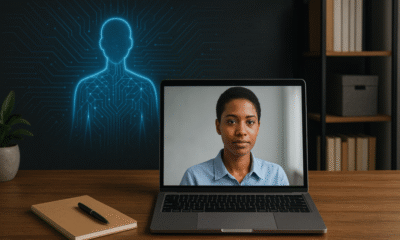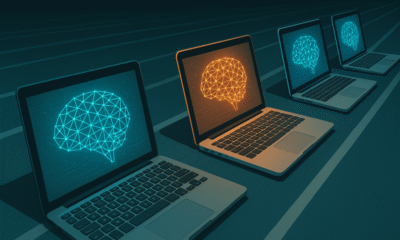Thought Leaders
Why Artificial Intelligence Lacks Creativity and What Can De Done to Help it

Artificial intelligence has worked its way into nearly every aspect of our lives. We’ve gone from envisioning a future with flying cars and robot butlers to living in a world with self-driving cars and voice assistants that we carry in our pockets.
Despite this, the fact remains that AI is not as far advanced as it could be. The current AI algorithms are only able to imitate or copy information. For example, it can compose a sonata in the style of Debussy or replicate a poem by Pushkin, but it cannot infuse meaning or emotion into the composition.
AI can create, but it cannot be creative. This limitation holds back its usefulness in all aspects of daily life. Right now, artificial intelligence still relies heavily on human input to understand how to transfer a lesson from one data set to another.
Beauty: The Blind Spot of AI
Creating meaning and finding beauty in things is a distinctly human trait, and it’s at the core of our ability to be genuinely creative. Machine learning has not yet reached a point where it can find beauty or meaning beyond data sets and patterns, so this is a huge blind spot for creativity.
In the same vein, AI cannot decompartmentalize its learning. For example, it can extrapolate the principle of addition from learning 1+1=2 and 2+2=4. Still, it cannot yet make creative connections between addition and a non-mathematical concept like the human mind can.
For now, this means that AI cannot derive its own unique meaning from, say, composing a symphony or reading a novel. Machine learning has not evolved to understand the significance of creation and creativity at its current level.
However, AI is excellent at imitation and nearly flawless when copying and completing. Suppose you gave it an unfinished aria from a famous composer. In that case, it could complete the piece in a satisfying and stylistically appropriate manner, but it couldn’t understand the importance or emotional meaning behind the notes.
So, now that we’ve outlined the creative limits of AI let’s talk about what we can do to help.
Is the Deep Learning Process the Key to Unlocking AI Creativity?
Currently, AI functions best when humans can feed it marked-up data sets. For example, AI learns how to detect X-ray abnormalities by examining images that have been marked up by humans to “show” the algorithm what is normal and what is potentially harmful. The same is true for “learning” how to paint, compose, or do other creative endeavors.
This kind of deep learning develops a vast system that can be tweaked to produce something brand-new. But does this count as creativity? Experts are divided.
Somatic CEO Jason Toy doesn’t believe that AI creativity is feasible just yet. He says, “Can we take what humans think is beautiful and creative and try to put that into an algorithm? I don’t think it’s going to be possible for quite a while.”
Other experts believe that it’s best to focus on allowing AI to augment human creativity with advanced cognition. Our understanding of AI is still expanding, but it already provides invaluable assistance in our personal and professional spaces.
From voice assistants to robotic surgeries to interactive companions, we’re learning that AI can do wonders for our way of life. It also greatly enhances our own creative capabilities, even if it cannot yet fully grasp the concept of creativity on its own.
What is the Future of AI Creativity?
Ultimately, most AI experts say that developing an intelligence with independent human creativity is not the end goal of studying AI. Instead, the purpose is to explore the fringes of what we’re capable of and push the boundaries as far as we can.
To this end, AI stimulates the human mind to think more creatively. It augments our creativity in a way that helps us further our understanding of machine learning. What an interesting symbiosis we’ve created.
So then, we know that AI cannot currently be independently creative because it cannot yet suffuse meaning into its creations. On the flip side, even in its current form, AI fills humans with unprecedented, unbridled creativity.
I believe the future of AI creativity lies in the cyclical nature of the human-AI learning relationship. As machine learning allows humans to deepen their creativity, I fully expect this to deepen the AI’s understanding of the true nature of creativity.












